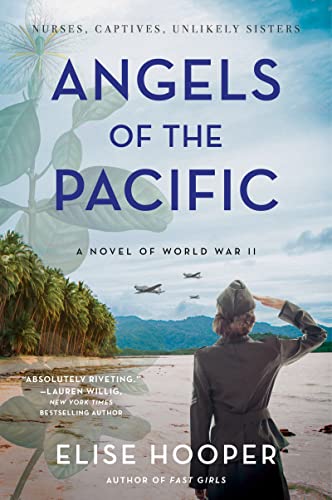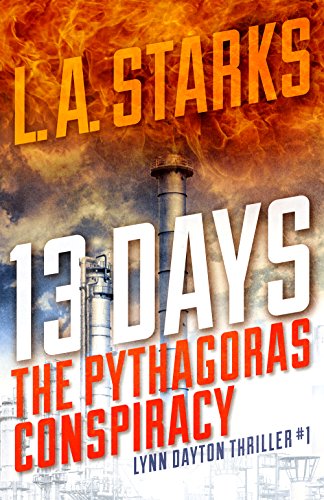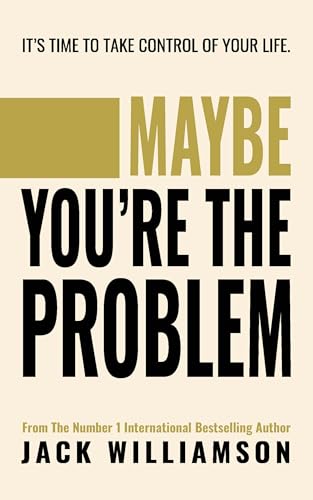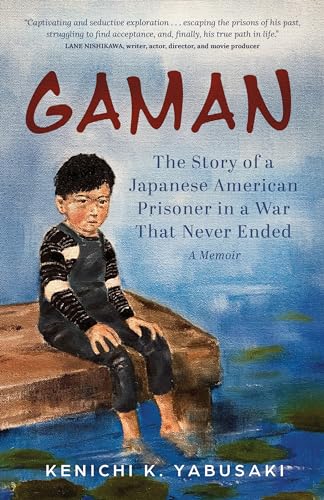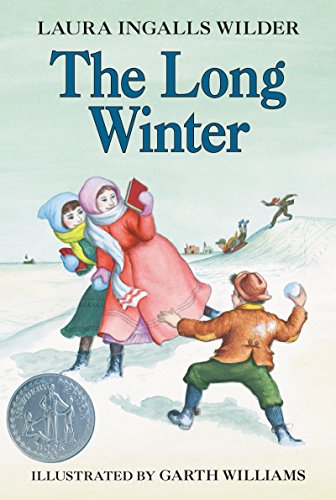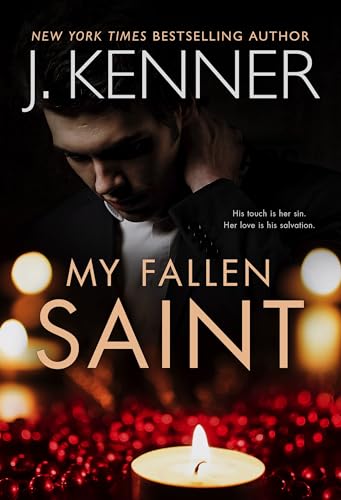On Friday we announced that Sam Jane Brown’s Forgotten Word is our Thriller of the Week and the sponsor of thousands of great bargains in the thriller, mystery, and suspense categories: over 200 free titles, over 600 quality 99-centers, and thousands more that you can read for free through the Kindle Lending Library if you have Amazon Prime!
Now we’re back to offer our weekly free Thriller excerpt:
Zena McGrath is a detective working for an International Police Organisation at their Dublin Office. A routine day is turned upside down when she receives a call from her boss in the New York office.
A number of Catholic Priests have died in mysterious circumstances, the latest being an Irish Priest based at the Vatican. The Vatican authorities claim the deaths are due to natural causes. Brian Evens; Zena’s Superior officer based in New York tells Zena she must fly to Rome and meet a high-ranking Vatican Priest to discuss the case.
When Zena arrives at the Vatican she is greeted by Cardinal Donatello, a mysterious figure who has responsibility for training priests in the secretive and highly dangerous art of Exorcism. He reveals to Zena that the Priests who have died were all Exorcists and takes her on a shocking visit to see a Priest who is possessed by evil spirits.
Cardinal Donatello reluctantly reveals the seriousness of the problems the Vatican is facing in the eternal battle between good and evil and Zena herself has a chilling encounter with a demonic presence. Although shocked and disturbed by what she has seen at the Vatican, Zena is persuaded by Cardinal Donatello to allow the Vatican Authorities to fight the evil in their own way and not pursue her investigation.
Zena convinces Brian Evens that there is nothing to investigate at the Vatican and prepares to return to Dublin, only to be summoned to New York when another Catholic Priest is discovered brutally murdered. Zena flies to New York with a Bible given to her by cardinal Donatello and an evil presence following her every move.
During the course of the murder investigation in New York Zena is persuaded to take part in a Satanic Ritual in order to let her see into the past and reveal the murderer of the Priest. Whilst in a trance she sees the people responsible for the crime and the shocking truth leads her back to Rome and the culprit.
Cardinal Donatello is deported to New York to stand trial for his part in the crime and during the course of the trial the whole shocking truth of the Catholic Church’s battle against evil and the extent of satanic worship is revealed to the incredulous world. Cardinal Donatello is found guilty of his crimes and the revelations spark worldwide revulsion against all forms of religion, something that Zena with her insights into the world of Satan had warned of.
Zena returns to Ireland as the overthrow of world religions gathers pace to find peace and to try and rid herself of the evil spirits that are haunting her. Her quest leads her to the Holy Land in an attempt to find God and inner peace.
The events in the Holy Land lead to a climactic and shocking finale to this tale of good against evil; the second coming of Jesus Christ.
And here, for your reading pleasure, is our free excerpt:
Prologue
Satan in the Vatican
Endless Vatican corridors fill with the echoes of deep voices. The air is crisp and cold. Even in this holiest of all places, there is a feeling of disquiet and disharmony.
Cardinal Donatello sits in his office within the Vatican’s core, oblivious to the world outside his door. He turns his Bible page-by-page, reading over forgotten words, words that so many people do not read or choose to ignore.
There is a knock. The old man turns, a movement far quicker than his sixty years suggests.
‘Ah, Father Arnoldo. Come in. You’re here about Father Edmondo, I suppose.’
‘The demon within him is asking to talk to you. And he’s making threats about my family, saying they’re going to die with him…in Hell.’
Arnoldo’s forehead wrinkles with worry. He swallows hard before continuing.
‘He’s laughing about it.’
The cardinal bangs the top of the desk with a fist, and shouts, ‘What did we tell you during your training? Do not try and reason with the Devil. It will not work.’
‘But, Your Eminence—’
‘You must not talk to him – that is what he wants. He wants you to talk to him so he can undermine your faith.’
“I’m very concerned about Father Edmondo; he’s getting worse by the hour. Satan has taken control of him. You must come quickly.’
‘Mentally, his mind is weak. Father Edmondo knew the risk when he agreed to become an exorcist. We all knew the risk. It is never an easy task keeping the Prince of Darkness away from people’s minds. That is his best form of attack: to turn as many people away from the word of Our Lord.’
Donatello waits for his words to sink in. The young priest opens his mouth, searching for something to say, but before he can speak…
‘We must build people’s faith in what I call, “the lost words of the Bible.” These words have been forgotten by so many millions of us, and it is only by understanding these words that we can be saved. Is that clear?’
The cardinal waits for Arnoldo to respond. The priest nods. Only then does the older man continue.
‘You may ask, “What can be done now for Father Edmondo?” We must persuade him to pray with us; the exorcism is not working; the demon is stronger than we are.’
‘Cardinal Donatello, are you going to talk to the demon?’
‘No, I will not. I will just let him talk to me; he wants me to react. I do not want to satisfy the Demon’s needs.’
Donatello rises and motions towards the door. The two men exit the office, the cardinal pausing to softly shut the door after them.
They stride determinedly down the long corridor. In the distance, the sound of a deep, sinister laugh is heard. Arnoldo falters ever so slightly. Cardinal Donatello marches on.
Father Arnoldo whispers to the Cardinal. ‘I cannot believe that the Prince of Darkness is here in the Vatican, Your Eminence.’
‘We cast demons out of people, the first thing Satan is going to do is reside where he is not wanted. You have to learn how to ignore these things and to keep your mind mentally strong. There is a lot at stake. We cannot afford for this to be known by the general public. The Church is always in the world’s eyes. Satan is mocking us, so keep your mind focused, Father Arnoldo.’
At Father Edmondo’s room, they find the door slightly open – two priests can be seen sitting at the bedside trying to feed Father Edmondo, who spits it back at them.
Cardinal Donatello pushes open the door and enters. The two priests stand, nod, then leave, anxious to distance themselves from this stench of evil. They brush past Arnoldo, who stands helpless in the doorway, not knowing whether to enter or flee.
Donatello pulls a chair up to the bed. No sooner does he sit down than the demon possessing Father Edmondo roars with laughter – a blood chilling sound that travels to every corner of the Vatican.
Father Arnoldo takes a step backwards.
‘Tut, tut, tut, Cardinal Donatello,’ the Demon says, ‘How many times have I told you, “Exorcism does not work any more”? The people of this world are weak, and so are your priests. Their faith is not strong enough to resist. But you, Cardinal, are a different matter. You, I will possess last. Even you will surrender to me in the end.’
Satan laughs.
He raises Edmondo’s arms as though they were the arms of a puppet. Then he drops them with a thud onto the bed.
‘This weak, weak world belongs to me, and I will be its leader. And where is your God? Gone. Nowhere to be seen.’
Donatello looks at Father Edmondo’s body with a mixture of sadness and pity. The cardinal does not rise to Satan’s words; he holds the Bible against his chest, near his heart, and says nothing. He just watches.
The Darkness continues to goad.
‘Your God has left you – he left this world thousands of years ago. Now the world is mine. Look around you, Priest. You can see my influence everywhere. Murders. Fornication. Lies. Deception. I have even influenced men of God to sin with children. This is my world, Priest, and there is nothing you can do about it.’
Father Edmondo’s eyes slowly close.
Finally, there is silence. The Demon has no more words; he has lost. The corners of Donatello’s mouth begin to turn up, ever so slightly. Arnoldo even takes a step into the room.
Only someone perceptive would notice how white the Cardinal’s knuckles were as they grip the Bible.
Edmondo’s eyes snap open; they’re intense, bulging; they stare into Donatello and into the man’s soul.
‘Ah, your Bible, Priest,’ the demon screeches. ‘The Bible hasn’t helped you up to now, has it? It will not save the world; the world has long forgotten those words inside. This priest will be dead by tonight, and where is your God? How many of your exorcists have I killed? Is it twenty? Twenty-five?’
He laughs maniacally.
Father Arnoldo crosses himself.
‘We are causing havoc in this world, taking over minds one by one. It is so easy.’
Suddenly, Cardinal Donatello stands, throws his chair against the wall, and storms out of the room.
As dawn breaks over Vatican City, Satan’s prediction comes to pass. Father Edmondo lies dead in his bed.
With a heavy heart, Cardinal Donatello walks along a corridor lined with great works of art to the private apartment of the Holy Father. Entering the room, he kneels before the Pope, head bowed.
The Pontiff continues writing at a large, ornate desk.
‘Your Holiness, the situation is becoming worse by the day. The demons have killed many of our exorcists over the past year. There is only so long that we can keep this secret to ourselves. Members of the deceased priests’ families are asking questions. They demand to know why their sons are dying. They have complained to the police; the police will soon be at our door, Your Grace. What am I to tell them?’
More writing. Donatello waits. Just as he dares to steal a look at Christ’s Vicar, the pope puts down his pen and clears his throat.
‘If you say we are losing the battle against evil, that Satan is taking over our priests’ minds and killing them, they will not believe you. We would be accused of murder ourselves, and many in this world would mock us.’
The Pontiff stands and walks to a large bookcase. He reaches for a book, then stops. Instead, he looks out the window as though distracted suddenly.
‘There is not a day that goes by that I do not hear Satan laughing.’
His voice becomes quiet. Donatello strains to hear.
‘We are trapped in the middle of the war between God and Satan, good versus evil. We are living in the last days of the world as we know it. We must follow the Bible, live by God’s own words. He will let us know soon enough what we have to do.’
He turns to face the Cardinal; his voice booms.
‘Let the police come, Cardinal Donatello. Show them what is happening, what we must endure day after day. Let them see the evil with their own eyes.’
Chapter 1
Dublin Headquarters of G2 or Garda Síochána, –
Monday Morning – 10:00
‘You have got to be kidding. Not a chance. I’m the wrong person for the job.’
‘Will you listen for a minute?’ The voice on the other end of the line – a voice thick with a New York accent – grows impatient.
‘Fine. Have it that way. I just think it’s all a load of rubbish – exorcism, Satan, God – it’s all rubbish. We have murderers running loose on the streets. I have more important things to be looking into.’
Zena McGrath sweeps her arm across the papers on her desk, momentarily forgetting she’s on the phone and the other party can’t see her dramatics. She almost knocks over a coffee cup. She takes it as a sign.
‘Okay, Brian,’ she asks, somewhat calmer now, ‘here’s a question for you: why me?’
‘Honestly?’
‘That would be nice.’
‘We don’t have the manpower at the moment.’
Zena ponders this for a few seconds; her face twists into an expression of disgust at the implication.
‘Look, Captain McGrath…’ His voice lowers with conspiracy. ‘Zena, listen to me. We have some pretty high-level politician types who are having their butts chewed out by some even higher-level religious types, if you know what I mean?’
As she listens, she absent-mindedly brushes a strand of her wavy red hair from her face. Her deep-set blue eyes squint as she tries to hear what’s behind the man’s words.
‘There are twenty Catholic priests who have worked in Vatican City over the past year and are now dead. The families aren’t being allowed to see the bodies. The Vatican’s saying they died from natural causes. Tell me what we should do?’
‘Find someone else?’ Zena waits for a laugh. At least a chuckle. Nothing.
She sighs.
‘What else do you have?’
Over the line, she hears Brian shuffle papers. When he speaks again, she knows he’s reading.
‘They’re all under forty…from different parts of the world…all trained at the Vatican to perform exorcisms…all died suddenly… Oh, by the way, the latest priest to die is from Dublin – that’s why this is all yours.’
And before she can object again…
‘We’ve booked your flight to Rome; all the details will be e-mailed to you. You’re flying out on Wednesday. We’ll courier over the case files. You’ll be meeting Cardinal Donatello. I’ve spoken with him, he knows you’re coming. You have four days to find out what’s going on. I’ll be calling you for updates. Okay?’
‘Do I have a choice?’
Here Brian laughs as he puts the phone down. As soon as he has, Zena slams hers down.
‘I don’t bloody believe this! Vatican City! This is the last thing I need!’
She opens her desk drawer and searches for her passport. When she doesn’t find it, she slams the drawer shut.
‘Damn it!’
She sits for a moment, mentally going over her assignment, turning each detail for some hook, some handle she can grasp and pull on.
Then it occurs to her with a sinking feeling in the bottom of her stomach: I don’t even believe in God!
Chapter 2
Thursday Morning – 11:30
A faint knock can be heard on the Cardinal’s door.
‘Come in,’ Cardinal Donatello calls.
The door opens slowly, and stood before him is a slender, attractive young woman, with long red hair, thin features, and a good bone structure to her face. Not at all what he expected. A woman! A young woman!
Cardinal Donatello stands. He smoothes the creases in his red robes and looks at her extended hand.
‘Hello. Cardinal Donatello? I’m Captain McGrath.’
The cardinal picks up her soft Irish accent. He takes her hand and they shake. Without a word of greeting, he motions to a chair.
‘Thank you for seeing me. I’m leading the investigation into the suspicious deaths. We’ve had complaints from the victims’ relatives. I have questions, if I may—’
‘You must be tired,’ Cardinal Donatello replies. ‘Where have you travelled from?’
Zena is taken aback – she asks the questions.
‘I…I’ve travelled from Ireland. I arrived late last night.’
‘Can I get you something to drink, Captain McGrath?
He smiles a gentle, benevolent smile that weakens her initial steel resolve.
‘Oh! Okay. A black coffee, please. With two sugars.’
Cardinal Donatello walks over to a side table. He pours the coffee and hands a cup to Zena. Then he sits behind his huge oak desk.
Zena sits opposite him with a blank expression on her face. She waits for him to begin his explanation as to why so many priests have died.
Cardinal Donatello reluctantly looks up.
‘Captain McGrath, do you believe in Satan and God?
‘Zena, Your Eminence. Please call me Zena,’ she replies. She pauses, looking for the right words. ‘No I don’t believe in either God or Satan. I just think – if you don’t mind me being outspoken – men created religions in order to control the minds of the people. I’m sorry to say this, considering that I’m sitting in the Vatican. I’m the wrong woman for this job. There are so many different religions saying you have to do this and you have to do that. Seventy percent of crime worldwide is due to religion, Father. It causes so much war, so much pain, and so many murders. Murders that I have seen on a daily basis, so forgive me, Father, if I’m not as open as you are. I’m Irish, and I lost most of my family. They were murdered in the name of religion, and I vowed when they died that I would never set foot in a church again.’
‘Not even for a funeral? What do you do when somebody you know dies?’ Donatello asks.
‘I don’t bother going to funerals or weddings.’
‘Well, Zena, you are going to have to believe in something when I take you to see one of our priests.’
Zena looks puzzled.
‘What do you mean, Your Eminence?’
‘Do you believe in demonic possession?’
‘Oh, come on, Father, does that really exist?’ She restrains herself from laughing out loud. ‘Possession? I call it mental instability.’
‘Are you telling me the twenty priests who have died over the last year were all mentally unsound?
The cardinal waits for her to answer, but when she remains silent, looking at him with curiosity and amusement, he continues.
‘No. We have a section here in the Vatican that monitors and records the instances of members of the public who we believe to be possessed, and we have documented evidence to back it up. There is much, child, that you do not know, so much that has been hidden from the public eye. We have many hundreds of priests from around the world who have come here to receive training in how to recognise and handle those possessed by demons…’
He leans forward.
‘Those in need of exorcism.’
‘Okay, Your Eminence, you tell me. What exactly happens when somebody is possessed?’
‘Well, Satan enters into the human body; how we do not know. Demons take hold of their brain functions; they literally take over all the victims’ body functions, not allowing them to eat, drink, or sleep. Some people’s thoughts are then turned to those of a murderer – the demons control the victim’s mind and tell them what to do. Half the time they are totally unaware of what they are doing, until the event is over.’
Donatello pauses so his words sink in.
‘You have heard that saying, “Like a man possessed”? Well they really are, complete with violent behaviour, swearing, and many things that you would have never seen in your life.’
Again he leans forward. His eyes burn with intensity.
‘Many of our priests have been young, like you, and enthusiastic, thinking they are capable of performing exorcisms, but many succumb and become possessed themselves. When this happens, we bring the priests here to the Vatican. This secret must remain confined to these walls.’
Zena cannot take her eyes off his.
The cardinal stands.
‘I am now going to take you to where we keep our records: the Vatican Archives. We have extensive notes on all the exorcisms that the Catholic Church has performed worldwide. We have been performing exorcisms for many hundreds of years, you know? Each has been accounted for fully, names, places, the priests who conducted the exorcisms, the victims, and the victim’s outcome. There are hundreds of metres of footage on tape. Recordings. Photographs. I think there is enough evidence to keep you occupied, and when you are through, I will show you the most compelling evidence; I will take you to see the latest priest who has been possessed by the Devil.’
Zena and Cardinal Donatello rise from their chairs. Cardinal Donatello opens his office door and holds it for the Captain.
‘Please.’
They walk along another of the seemingly endless corridors. As she looks at the walls, Zena sees pictures and portraits of predecessors of the current Pope.
‘This really is the most stunning building that I’ve ever been in,’ she says, trying to make conversation. The cardinal stops, allowing her to just stand for a moment and take in the beauty around her.
‘Yes, Captain McGrath,’ Donatello replies, ‘it may be very beautiful, but you have no idea what we have to live with. Don’t be fooled. Satan is within these walls, we hear him day and night.’
Zena and Donatello climb three flights of stairs, then walk down another long and echoing corridor.
‘Finally,’ the priest says. In front of them is a huge, heavy, medieval oak door. Zena feels shivers down her spine. For a moment, she thinks she can feel evil within the atmosphere. Nonsense. She quickly puts the thought out of her head.
The cardinal opens the door to a vast room filled with filing cabinets. On top of the cabinets sit boxes piled high with videocassettes and tape recordings.
Zena is stunned by the size of the room.
‘My God, this room’s bigger than my whole house by about ten times.’
She looks up and sees wooden beams above her. The room has a very airy disposition about it.
She walks around, opening cabinet drawers labelled from A to Z. A box on the other side of the room catches her eye; she walks over to it. As she tries to pick it up, the contents spill out onto the floor.
‘Oh, I’m so sorry, Your Eminence.’
Immediately she kneels to gather the papers. One catches her eye: it’s typed in German and has a picture of Adolph Hitler paper-clipped to it.
She slowly stands, still trying to decipher the foreign language.
‘What are these, Father Donatello?’
‘Proof. We believe that Adolph Hitler had been taken over by demonic forces. We have secret letters sent from people who worked alongside him at the time, asking the Vatican for help. Some days he would be fine; other days his behaviour led those around him to believe he was possessed by the Devil. His desire to create a master race, the persecution of the Jews, the torturing of prisoners before beheading them…and much more that I cannot bring myself to speak about.’
Zena hands the paper back to the man. He carefully puts it away in the box, and returns it to its place on the cabinet.
‘The mass killing of the Jewish people, we believe to be one of Satan’s attacks on God. Murdering the Jews was ultimately the Devil mocking the race of Jesus Christ and God. Think about it, young lady, when did the wars start? It was when Satan was cast out of Heaven he began to wreak revenge here on Earth.’
‘What are you trying to tell me? That Satan lived up in the heavens with God and Jesus and they got fed up with him and threw him down to Earth, and that was the beginning of the World Wars? Well, Father, I don’t think that this is going to go down well at my Head Office. I’ll get the sack if I go back with that story.’
‘Like it or not, Captain McGrath, that is the start of the story, and there is much more to come. The hidden messages are in this book.’
The priest picks up an ancient looking Bible from a stand on a nearby table. He attempts to hand it to Zena, but she shakes her head. Donatello nods, and reverentially places the book back.
He turns and walks over to a filing cabinet on the left side of the room. He pulls open a drawer and roots around.
Something causes Zena to glance to her left. She peers into a dark corner, trying to make out what’s there. What she sees freezes her to the spot.
‘Cardinal Donatello, there’s somebody or something in the room with us. I can feel it.’
Continuing to search in the drawer, Cardinal Donatello replies, ‘There most likely is. Many of our priests will not set foot into this room. Understand that Satan is going to try and protect his work, Captain McGrath. All this is memorabilia to him. Trophies of his…evil accomplishments, if you will.’
Zena stares wide-eyed into the darkness where a shape appears, grows, and takes form. She blinks, trying to see more clearly. She looks intensely into the dark, and, there she sees a beautiful, blond man with piercing blue eyes looking back at her.
The Fallen Angel steps forward.
Zena gasps.
He silently watches and listens to Zena and Cardinal Donatello talk.
‘Your Eminence,’ Zena says, ‘there’s… He’s… What should I do?’
‘Just continue with what you are doing. Whatever it is, it has no reason to try and hurt you. As you say, you do not believe in God or Satan.’
The Fallen Angel walks up to Zena and stands directly in front of her. He looks into her eyes, and, again, a cold chill trickles down her spine. She quickly turns and walks to a filing cabinet in the middle of the room. She opens a random cabinet drawer, one labelled, “Video Recordings of Exorcisms”.
‘Your Eminence, please, can I watch one of these videos?’
He looks at Zena; her head is almost in the drawer. She attempts to ignore the ghostly presence.
‘If you must,’ the cardinal replies. ‘I will go and fetch the television and video from the room next door.’
‘Don’t be long, I don’t like this room – it’s cold…and damp. It gives me the shivers.’
He leaves.
Zena concentrates on the contents of the drawer.
The beautiful apparition speaks, but she is unable to hear him. She can feel his presence and see his form, but none of his words reach her.
When he talks, her body temperature drops and she feels extremely cold.
‘So, you do not believe in God or the Devil? Good.’
He walks to the filing cabinet next to her and pushes a box onto the floor.
Zena screams. She runs to the door just as Cardinal Donatello returns, pushing a television and video on a trolley.
‘What is the matter, my child?’
‘I felt cold all of a sudden, and then a box suddenly fell on the floor.’
The cardinal looks around, knowing all too well the signs of Satan and his demonic angels. He says nothing. He wheels the cart over to the wall and plugs the television and video into the power socket.
He turns to Zena and motions towards some chairs.
She pulls over two chairs and positions them in front of the television as Donatello pushes the videocassette into the machine.
‘I won’t ask if we can turn the light off for that cinema effect,’ she says, attempting to be light-hearted.
‘You might not think that this is a laughing matter after you have watched what is on this tape.’
‘I’m sorry, Your Eminence,’ Zena replies. ‘I was just joking to hide…well, you know?’
She ventures to look around the room, but quickly changes her mind. She stares at the television screen.
Donatello can’t hind his disgust at her weakness.
The cardinal pushes the play button. A film of an exorcism begins. A caption states it is about a young boy from Kansas City in the USA, and took place in 1976 when the boy, Trevor Jones, was thirteen years old.
The Fallen Angel backs into the dark, recoiling from the images on the screen.
Zena watches the demonic scenes on the tape with a sense of mounting horror. The young boy is subjected to sickening violence from the satanic forces during the course of the exorcism. Tears of sadness roll down her face; she struggles to regain her composure. Then disbelief washes over her.
‘Is this genuine, Father?’
‘Yes, Captain. This is very real.’
‘What happened to the boy?’
‘He survived and now lives a normal life. He is one of the lucky ones; many do not survive. There is another world that you cannot even comprehend, a world that is extremely dangerous. We live all around it. Many people are blind to what goes on, but others can sense what is happening and know what is going to happen.’
‘What do you mean, “what is going to happen”?’
‘You should read the Bible one day. It contains a very important message.’
‘What message?’
The cardinal moves uncomfortably in his seat. Zena realizes that she has offended the man with her abruptness.
‘Basically,’ Donatello replies, his words spoken evenly, patiently, ‘the Bible teaches us how we should live our lives. It contains predications, many which have already come to pass. Its final prediction is God’s war with Satan, and the consequences that people will face who have not heeded His warnings.’
‘What is the outcome, Your Eminence? If I may ask.’
‘Well, young lady, see what you get from it. Everyone interprets the Bible differently, and people believe what they want to. But there is an important message in there.’
He hands Zena the two-hundred-year-old Bible.
‘You may have it; it may save your life.’
Zena takes the Bible and carefully puts it into her briefcase.
From the darkness, the Fallen Angel watches. His facial expression fills with anger and disbelief. He growls a low guttural sound when she accepts the gift.
‘Thank you, Your Eminence. I will take it because it does look like a lovely book, but I can’t promise that I’ll read it.’
‘You will,’ Cardinal Donatello replies with a knowing smile. ‘You will…in time.’
He returns to his desk. Zena follows him, standing before it not unlike a disobedient student before a head master, which is exactly how she feels.
On the desk, Zena spots an envelope with photographs spilling out.
‘May I have a look?’ she asks.
The cardinal nods.
She pulls a black and white photograph from the envelope: taken in the 1940s, she judges, it shows the crucifixion of a priest in all its gory detail.
She continues to examine the picture, looking, she tells herself, for signs it isn’t real. It can’t be real.
‘It is the only case we have ever had like that in all our years,’ Donatello says. ‘It was one of our priests in Spain who was murdered and tortured in the same manner as Jesus Christ. We have never found who did it, although we do think demonic forces are behind it.’
Out of the corner of her eye, Zena sees the Fallen Angel step forward from the dark shadows. He’s smiling.
She stuffs the photo back into the envelope.
‘Do you mind if we leave now? I have things to do. My investigation. There’s a lot to do. Can we go?’
‘Of course,” Donatello says. He extends his hand towards the door, and they leave.
They walk down the stairs and along the corridors. Unbeknownst to them, they’re followed: the Fallen Angel slides along walls and ducks into black recesses, never losing sight of them.
‘I am taking you to our priests’ quarters,’ the cardinal tells her. ‘I need to show you something.’
Zena and Donatello walk out of the building and into the Vatican gardens. Zena stops for a moment, gasping in disbelief at the beauty of the sights before her.
‘Oh my, I thought Ireland was lovely, but this really is something. I never knew there was so much land for gardens in here.’
Cardinal Donatello pauses for a moment in thought. ‘I believe there are around one hundred and ninety acres, to the best of my knowledge.’
‘That’s a large area to protect.’
‘We have over two hundred cameras keeping a watchful eye on everything, but it is not what we can see that I am worried about, Captain McGrath. It is the unseen.’
The cardinal slowly leads the detective through the beautifully manicured gardens to allow her time to admire her surroundings.
Soon they arrive at the large building that is home to the priests based in the Vatican, a busy, yet quiet and peaceful, area with priests coming and going. Many are circling the building in silent contemplation, carrying Bibles.
‘Does everyone here carry a Bible around?’
‘Not all priests do,’ Donatello replies. ‘I do not have one at the moment, do I?’
‘Well, no.’
‘I suppose it is a reminder that we have God’s work to do, and that we always have His words at hand.’
Cardinal Donatello leads Zena up a flight of stairs to one of the priest’s private rooms.
When they reach the landing, he signals for her to stop. He speaks in a hushed voice.
‘What you are going to see now, will shock and upset you. Father Angelo is one of our young priests from Tunisia. We believe that Satan has possessed him, and he has been brought in secret to the Vatican to be cared for. The demon inside him is not allowing him to eat; we are doing what we can to help him.’
They enter the young priest’s room. At the side of Father Angelo’s bed sit two more priests. Father Angelo is lying on his back on the bed; his arms strapped down at each side to prevent him from harming himself.
As the priest and McGrath enter, the Fallen Angel follows them in, unseen by the occupants of the room.
When Cardinal Donatello shuts the door, the room temperature suddenly drops, and everybody in the room becomes icy cold.
The demonic spirit inside Father Angelo speaks in a deep and chilling voice.
‘Ah, Priest. I see you have brought me a visitor.’
Zena stares with horror and disbelief at the sight before her. Father Angelo’s body writhes, moving with great discomfort as though every muscle aches with excruciating pain.
The two priests, flanking Angelo’s bed, begin to pray fervently.
‘Answer me, Priest. Who is this woman?’
Donatello turns to Zena and places a hand on her arm.
‘Do not talk to it. That is what he wants.’
‘So, Priest, you do not answer me. I will tell you, then, shall I? She is Captain Zena McGrath.’
Angelo’s head turns to face Zena. His eyes convey rage.
‘I know everything about you.’
Zena is stunned. Her face registers her fear.
‘You are here to investigate the deaths of the priests. Well, I killed them all. What do you think of that? Go back to New York and tell your colleagues. They will not believe you, Zena, will they?’
The Demon’s laughter reverberates until it becomes a high-pitched squeal. It causes everyone to wince. The Fallen Angel chuckles to himself.
Zena summons all her strength to bury her fear and opens her mouth to reply.
‘No! Stop, my child,’ Donatello warns her. ‘Do not talk to it.’
‘Be quiet, Priest. You are being watched, and, Zena, now that you’ve made your presence known to me, you also will be watched.’
The spirit gives out a low, pleased gurgle. It looks to where the Fallen Angel stands behind Zena and Cardinal Donatello, and gives him a sign, unseen by the humans.
It’s returned and understood – Satan’s threat to Zena is now a command.
‘Come, Captain McGrath,’ Cardinal Donatello says. ‘You have seen all you need to see.’
From within the possessed priest, the spirit voice growls, ‘I will be sure to say hello to your parents, Zena.’
She spins around.
‘You bastard! My parents are dead.’
‘I know they are, Zena. They’re here with me.’
Zena aims a punch at Father Angelo’s face. The two attending priests grab her and forcefully prevent her from making contact.
‘You evil bastard! Leave my parents out of this.’
Donatello holds Zena and quickly ushers her out of the room.
The unseen Fallen Angel follows.
‘You should not have spoken to it,’ the cardinal cries out. ‘It knows your weaknesses and how to upset you, and now the spirit has an insight into you as a person.’
Out of earshot of the room, he releases his hold on Zena. She breathes heavily, struggling for air.
‘Come along. We must find you something to drink. Something to eat.’
He continues down the corridor. After a moment, Zena follows. Then, of course, the Fallen Angel.
‘Tell me, how did your parents die?’
‘It was years ago…a bombing…in Northern Ireland. I just can’t understand if there is a God, why does he allow all this suffering in this world? Starving children, wars, murders. What is it all about Cardinal Donatello? You wanted to know why I didn’t believe in God or the Devil.’
She pauses. Reconsiders.
‘Well, after what I’ve just experienced, I certainly believe in the Devil now.’
‘That’s a start.’
‘Cardinal Donatello, is there any way that this could just be a symptom of mental illness? Might that be possible?’
‘Deep down you know it isn’t illness. Like I said, there is a dark world within this world that you just cannot imagine, a world that is run by Satan and his demonic angels. Many millions of them, they are everywhere; they can alter our behaviour, the way we think, our whole demeanour if we are not careful. Satan wants to take as many people down with him as he can, so he does it subconsciously. You have always got to be on your guard. I am sure his demonic angels will be watching your every move now, as you have witnessed firsthand what he is capable of doing to us human beings.’
‘What do I do, Your Eminence?’
‘Read the Bible I have just given you: it is your survival guide. Study it, and it will keep you mentally strong and with faith.’
‘But I don’t have any faith, Father.’
‘Read the Bible, and you will in time. Come now, Zena, we have much to do.’
He hurries ahead; Zena catches up.
‘You called me Zena.’
‘We are friends now, yes?’
Zena smiles.
‘Yes.’
They disappear down another corridor.
The Fallen Angel follows; he is not pleased.
Chapter 3
Thursday Afternoon – 14:00
‘Now you can see why you cannot tell your superiors the real story?’
The cardinal sits at his desk, his hands intertwined before him as though in prayer. Zena sits across from him. Her brow is furrowed.
‘What will I say then? I can’t possibly tell them the truth, and this is more than my job’s worth.’
The Fallen Angel stands in the corner of the room waiting to hear her reply.
An answer comes to her.
‘Okay,’ Zena says, ‘I’ll tell them I’ve looked at the Church’s records concerning the priests’ deaths, and there is nothing suspicious. They all died from natural causes; there won’t be a need for any follow-up enquiries. I’ll get them to drop the case.’
The Fallen Angel looks pleased knowing Satan has yet again gotten away with his evil deeds…and will continue to do so.
‘When are you returning to Ireland?’
‘I fly back home tomorrow morning, so I have one day to look around your beautiful city, Father.’
‘Just remember, Zena: the Devil really does exist, despite how it might look in the world outside the Vatican. The desire for peace that most people aspire to is hiding the truth. But the world really is plagued by hate, violence, and war, and has been so for many thousands of years. That is what threatens the destruction of mankind. Satan is not in every person, we have a choice, and it is that choice that God recognises. We are living on borrowed time; there are many signs to back this up: nation will rise against nation, kingdom against kingdom; food shortages worldwide; earthquakes and other natural disasters; starvation, illness and diseases. Look at the world news and you will know it is true. We are living in very dangerous days, Zena, take heed and make the right choices in your life.’
There is a knock at the door.
Zena jumps.
Cardinal Donatello looks up.
‘Ah, hello, Father Annelid.’
A thin, smiling man enters.
‘Zena, this is Father Annelid, my personal representative, my right-hand man, if you will. He travels all over the world for me on many demonic assignments.’
‘Hello, Zena,’ Father Annelid says with a nod. ‘How are you enjoying your visit to Rome and the Vatican city?’
‘Well, this has to be one of the most interesting and scariest moments of my life. I just can’t believe what’s going on, I’ve witnessed things that will change my life.’
‘Don’t worry,’ Annelid replies, ‘you do not threaten the Devil. You’ll be fine.’
The Fallen Angel stares at all of them in the room, to suggest otherwise.
‘What are you telling your superiors in New York?’ Father Annelid asks.
‘I’ve told Cardinal Donatello not to worry; I’ll tell them that there’s nothing suspicious about the priests’ deaths, and that should be it.’
The two men nod their approval. The cardinal stands. Zena takes this as her cue to leave.
‘If we can be of any further assistance…,” Annelid says.
‘Thank you. Could you organise transport for me back to my hotel?’ Zena asks.
‘Certainly,’ both the clerics reply.
Cardinal Donatello hands Zena one of his cards, with his private telephone number.
‘If you have any problems, Zena, please call, even if you are just concerned and want someone to talk to.’
‘Thank you, Your Eminence. I will.’
Zena leaves the cardinal ’s office. Not far behind is the Fallen Angel that has taken an interest in her.
She walks outside to where a car is waiting.
Zena gets in the car and asks the driver to take her to the Hotel Alimandi Vaticano.
As the car pulls away, she has a pained expression on her face. She tries to collect her thoughts on the events of the day, no longer knowing what to believe anymore.
Opening her briefcase, she pulls out the old Bible Cardinal Donatello had given her. Flicking through the pages, she pauses to read the words that were written so many years before her birth.
Zena opens the car window to let some fresh air into the hot and stuffy vehicle. She arrives at the hotel, not realising that sat alongside her is Satan’s worker, watching her every move.
‘Thank you,’ Zena says to the driver as she exits the car.
She stands at the hotel’s entrance and marvels at the Roman architecture. As she enters the lobby, her eyes are drawn to the beautiful paintings upon the ceiling. She stops to take them in.
The ringing of her mobile phone startles her.
‘Hello,’ Zena says.
‘Captain McGrath? It’s Brian Evans in New York. How are things in Rome? How’s the case coming along?’
‘Fine. Just fine. There’s nothing suspicious. The deaths are all down to natural causes. I’ll e-mail my report with all the details over to you. There’s nothing more I can do here, Brian.’
‘Well, case solved then.” The man gives out a laugh and a snort. ‘So what are you going to do with your free time?’
‘I’m going to go and enjoy the Roman culture, eat some authentic Italian food, and…’
She looks down at the book she’s holding.
‘…read my two-hundred-year-old Bible.’
‘What! Has the Vatican converted you already?’ says Brian, laughing.
‘Not at all. I just want to understand better what it’s all about.’
‘Okay,’ Brian replies. ‘Send me your report by e-mail as soon as possible.’
She closes her mobile and walks across the lobby to the reception desk.
‘Hi there. My name’s Zena McGrath. Have there been any messages for me?’
‘What is your room number, please?’
‘Room 75.’
The receptionist consults a computer terminal.
‘No, Miss McGrath, there are no messages for you.’
‘Thank you.’
Zena walks to the lift and rides it up to her floor. Once she arrives at her room, she flops onto her bed with a loud sigh.
‘What a day,’ she says out loud.
Satan’s spirit worker walks to the corner of the room and sits on a chair next to the balcony window.
After a few minutes’ rest on the bed, Zena stirs herself and walks across the bedroom.
‘Well I had better try to make myself look beautiful,’ she says, looking into the mirror.
Zena unpacks an elegant long black dress from her suitcase, before walking into the bathroom to have a nice long soak in the bath.
An hour later, Zena is ready to sample the Roman nightlife. She walks out of the hotel, turns away from Vatican City, and strolls along the busy evening pavements lined with restaurants and coffee houses.
Stopping outside a restaurant that catches her eye, she cannot decide whether to go in or sit outside. She finally pulls up a chair at a pavement table.
Sitting there, she pulls the Bible out of her bag, lights a cigarette, and begins to browse through the ancient book as she did earlier. When the waiter arrives, she orders pasta and a bottle of red wine.
Sat unseen beside her, Satan’s spirit looks furious; he doesn’t want her to read that book. She should be happy living her life just the way she has; she doesn’t need to have her head filled with questions about the true meaning of life.
Three hours soon pass as Zena sits eating, drinking, and reading. She looks at the time on her watch, not quite believing how long she has been at the restaurant.
‘Well Cardinal Donatello,’ she thinks to herself, ‘the gist of what I’m reading tells me how to live my life and that’s it. No startling revelations or predictions.’
The Fallen Angel is relieved.
She finally decides to leave the restaurant; she calls the waiter and pays her bill. She lights a cigarette, puts the Bible back into her handbag, and stands.
The demon moves to her. He stares into her eyes. He reaches out and runs his fingers through her hair.
Zena feels her hair blow away from her face as if caught by a gust of wind. She shivers. Again she senses the presence of evil that she felt in the Vatican. Panic rises in her stomach.
She quickly makes her way back to her hotel where she hurries through the lobby and back to her room.
She retires to bed for the night, but can’t shake her feelings of unease…and impending danger.



